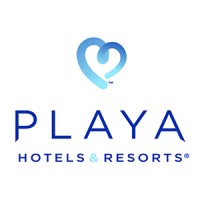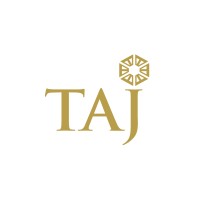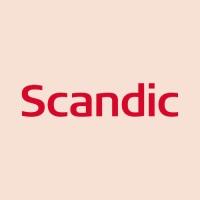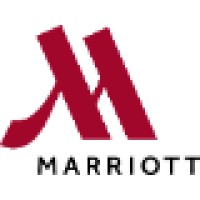
Playa Hotels & Resorts Company Cyber Security Posture
playaresorts.comPlaya Hotels & Resorts N.V. (NASDAQ: PLYA, "Playa") is a leading owner, operator and developer of all-inclusive resorts in prime beachfront locations in Mexico, Jamaica and the Dominican Republic. Playa currently owns and/or manages a total portfolio consisting of 20+ resorts under the following brands: Hyatt Zilara, Hyatt Ziva, Hilton All-Inclusive, Tapestry Collection by Hilton, Wyndham Alltra, Seadust, Jewel Resorts and The Luxury Collection. Playa leverages years of all-inclusive resort operating expertise and relationships with globally recognized hospitality brands to provide a best-in-class experience and exceptional value to guests, while building a direct relationship to improve customer acquisition cost and drive repeat business. For more information, please visit www.playaresorts.com.
PH&R Company Details
playa-hotels-&-resorts
10,001+ employees
45221
721
Hospitality
playaresorts.com
Scan still pending
PLA_2626165
In-progress
Between 900 and 1000
This score is AI-generated and less favored by cyber insurers, who prefer the TPRM score.
 PH&R Global Score
PH&R Global Score.png)

Playa Hotels & Resorts Company Scoring based on AI Models
| Model Name | Date | Description | Current Score Difference | Score |
|---|---|---|---|---|
| AVERAGE-Industry | 03-12-2025 | This score represents the average cybersecurity rating of companies already scanned within the same industry. It provides a benchmark to compare an individual company's security posture against its industry peers. | N/A | Between 900 and 1000 |
Playa Hotels & Resorts Company Cyber Security News & History
| Entity | Type | Severity | Impact | Seen | Url ID | Details | View |
|---|
Playa Hotels & Resorts Company Subsidiaries

Playa Hotels & Resorts N.V. (NASDAQ: PLYA, "Playa") is a leading owner, operator and developer of all-inclusive resorts in prime beachfront locations in Mexico, Jamaica and the Dominican Republic. Playa currently owns and/or manages a total portfolio consisting of 20+ resorts under the following brands: Hyatt Zilara, Hyatt Ziva, Hilton All-Inclusive, Tapestry Collection by Hilton, Wyndham Alltra, Seadust, Jewel Resorts and The Luxury Collection. Playa leverages years of all-inclusive resort operating expertise and relationships with globally recognized hospitality brands to provide a best-in-class experience and exceptional value to guests, while building a direct relationship to improve customer acquisition cost and drive repeat business. For more information, please visit www.playaresorts.com.
Access Data Using Our API

Get company history
.png)
PH&R Cyber Security News
Hyatt, Playa Hotels & Resorts Clear Final Major Hurdle for Sale
Playa Hotels & Resorts announced that all required approvals have been granted in relation to anti-competition filings for the pending sale to Hyatt Hotels ...
Italy's Leonardo becomes biggest shareholder of Finland's SSH with stake purchase
HELSINKI (Reuters) -Italy's Leonardo will buy a 24.55% stake in Finland's SSH, making it the latter's biggest shareholder as it expands its ...
Playa, Hyatt Extend Deadline for Possible Acquisition
Playa officials revealed no assurance that Hyatt will enter a definitive agreement for a potential transaction. The statement also said there “ ...
MGM Resorts’ Vegas properties take revenue hit in wake of cybersecurity attack
A social engineering attack on MGM in September impacted the company's third-quarter earnings, but its CEO expects upcoming events in Las Vegas to bring growth.
MGM Resorts' online hotel booking system is still offline
MGM Resorts' cybersecurity incident began on Sept. 10, crippling the company's reservation systems and casino floors in Las Vegas and other ...
Business & Enterprise Technology | Solutions | Lumen
At Lumen, we're reimagining delivery technologies for networking and cybersecurity solutions. From bringing the world's best esports gamers together in one ...
Playa Hotels & Resorts Completes Renovation of Wyndham Alltra Vallarta
Playa Hotels & Resorts announced the completion of extensive renovations at the newly renamed Wyndham Alltra Vallarta in Nuevo Vallarta, Mexico.

PH&R Similar Companies

J D Wetherspoon
J D Wetherspoon is a leading pub operator in the UK and Ireland. Back in 1979, founder chairman Tim Martin opened the very first Wetherspoon – in Muswell Hill, north London. Today, Tim and the company run over 850 pubs and hotels, spread right across the UK and, more recently, Ireland. During its hi

Taj Hotels
Established in 1903, Taj is The Indian Hotels Company Limited’s (IHCL) iconic brand for the world’s most discerning travellers seeking luxury and authentic experiences. Taj has been rated as India’s Strongest Brand across all sectors for an unprecedented fourth time and also as the World’s Strongest

Scandic Hotels
Scandic is the largest hotel company in the Nordic countries with a network of about 280 hotels with 58,000 rooms in operation and under development, in more than 130 destinations. The company is the leader when it comes to integrating sustainability in all operations and its award-winning Design

Radisson Blu
Welcome to the official page for Radisson Blu, a brand of Radisson Hotel Group. Stylish living spaces for business and leisure in some of the world’s favorite destinations. Choose stylish and elegant hotels that are created with you in mind. Enjoy a warm welcome with our inviting ambience and though

Omni La Mansión del Rio
The Omni La Mansion del Rio is ideally nestled along the historic Riverwalk among the banks of the Paseo del Rio in downtown San Antonio. It is within easy walking distance of the famous Alamo, El Mercado, La Villita District, Spanish governor’s Palace, San Antonio Convention Center and other well-k

Marriott Hotels
With over 500 properties worldwide, Marriott Hotels has reimagined hospitality to exceed the expectations of business, group, and leisure travelers. Marriott Hotels, Marriott’s flagship brand of quality-tier, full-service hotels and resorts, provides consistent, dependable and genuinely caring

Frequently Asked Questions
Explore insights on cybersecurity incidents, risk posture, and Rankiteo's assessments.
PH&R CyberSecurity History Information
How many cyber incidents has PH&R faced?
Total Incidents: According to Rankiteo, PH&R has faced 0 incidents in the past.
What types of cybersecurity incidents have occurred at PH&R?
Incident Types: The types of cybersecurity incidents that have occurred include .
Incident Details
What are the most common types of attacks the company has faced?
Additional Questions
What Do We Measure?
















Every week, Rankiteo analyzes billions of signals to give organizations a sharper, faster view of emerging risks. With deeper, more actionable intelligence at their fingertips, security teams can outpace threat actors, respond instantly to Zero-Day attacks, and dramatically shrink their risk exposure window.
These are some of the factors we use to calculate the overall score:
Identify exposed access points, detect misconfigured SSL certificates, and uncover vulnerabilities across the network infrastructure.
Gain visibility into the software components used within an organization to detect vulnerabilities, manage risk, and ensure supply chain security.
Monitor and manage all IT assets and their configurations to ensure accurate, real-time visibility across the company's technology environment.
Leverage real-time insights on active threats, malware campaigns, and emerging vulnerabilities to proactively defend against evolving cyberattacks.




